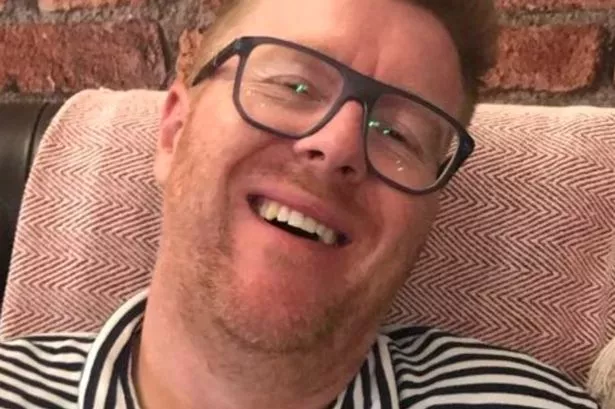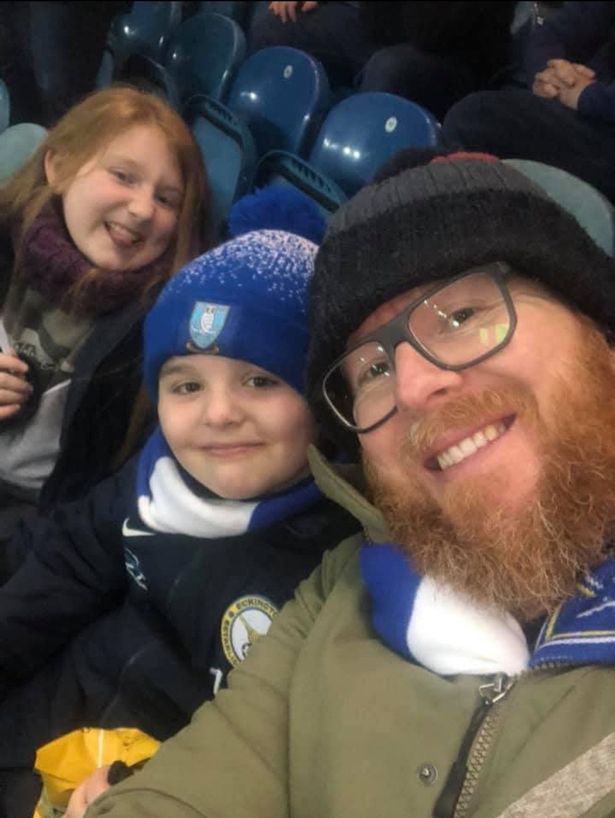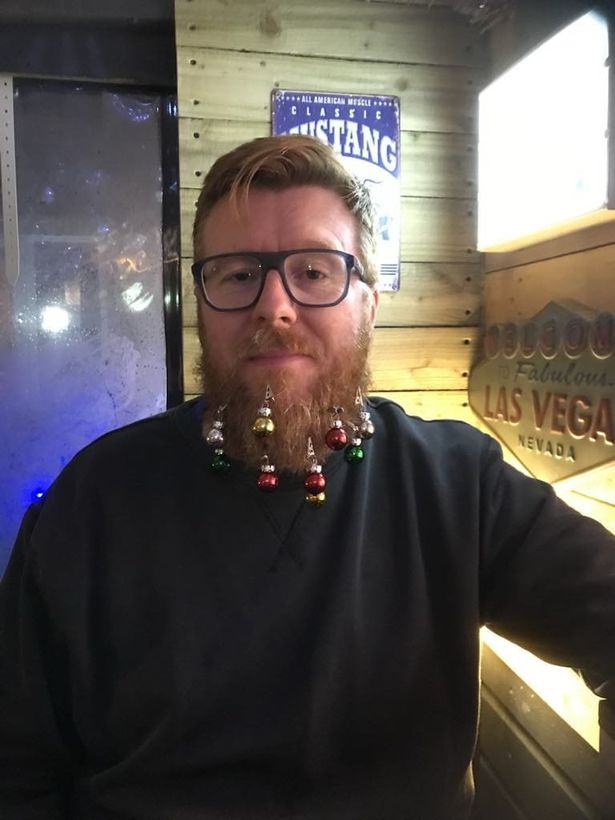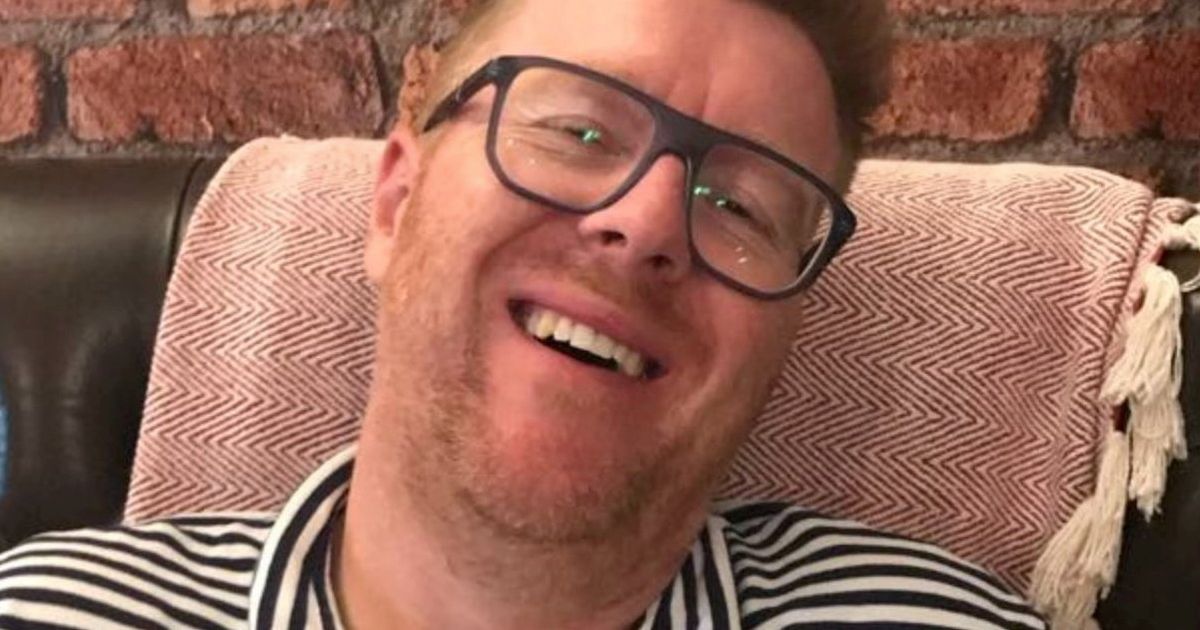Jamie first realised something wasn’t right when he started to forget the names of players in his favourite football team. Dad-of-two Jamie died after his aggressive brain tumour was misdiagnosed as depression(Image: Brain Tumour Research SWNS)
Dad-of-two Jamie died after his aggressive brain tumour was misdiagnosed as depression(Image: Brain Tumour Research SWNS)
A dad-of-two died a year after his brain tumour symptoms were initially misdiagnosed as depression. Jamie Acaster, from Eckington in Derbyshire, first noticed something was wrong when he struggled to remember conversations and the names of his favourite players.
During repeated visits to his GP, he was told he had depression, a condition he was convinced he did not suffer from. But Jamie’s condition deteriorated and he began forgetting names, struggled to recall familiar words and found it difficult to understand conversations.
His sister Donna grew increasingly concerned about her brother’s deteriorating condition and urged him to visit A&E. Donna said: “When he started calling me to say things didn’t make sense or he couldn’t remember people’s names, I knew something wasn’t right.
“He visited his GP several times, but they said he was depressed – Jamie knew he wasn’t.” She insisted he went to hospital and he underwent an MRI at Chesterfield Royal Hospital in April 2023, which revealed the truth.
 Sheffield Wednesday fan Jamie realised he was forgetting people’s names including those of his favourite football team(Image: Brain Tumour Research© SWNS)
Sheffield Wednesday fan Jamie realised he was forgetting people’s names including those of his favourite football team(Image: Brain Tumour Research© SWNS)
“I was at work when he finally phoned and said they’d found a shadow on a scan,” she continued. “He said ‘they think it’s a brain tumour’. I left work immediately – it was crushing.”
In April 2023, Jamie, 48, was diagnosed with a glioblastoma – a highly aggressive brain tumour – and given a prognosis of just 12 to 18 months. He underwent two surgeries in May, which removed 95 per cent of the tumour, and began radiotherapy and chemotherapy soon after.
However, treatment proved extremely challenging. Jamie suffered serious side effects, including liver and kidney issues, swelling caused by steroids, and had to take up to 50 medications a day.
He also developed pulmonary embolisms, where a blood clot gets stuck in an artery in the lung, which further limited treatment options. Donna added: “He went through so much and his treatments were relentless.
“Every time we thought we were past one hurdle, another one appeared. His body reacted badly to nearly everything – the medications, the chemotherapy, even the steroids.”
Jamie died on September 1, 2024, at the hospital due to a fatal blood clot in his lungs after a 17-month battle with cancer.
“But despite it all, his personality never left him,” Donna said. “He was still cracking jokes in his final days.
 Jamie’s sister Donna said he was the kind of person who “lit up every room he walked into”(Image: Brain Tumour Research SWNS)
Jamie’s sister Donna said he was the kind of person who “lit up every room he walked into”(Image: Brain Tumour Research SWNS)
“Even the night before he died, he was laughing with us. It was incredibly hard to watch him go through all of that, but he never stopped being Jamie.”
He leaves behind his wife, also called Donna, 50, their daughter Ava, 15, and son Harry, 12. At his funeral his family wore blue and white to represent his beloved football team, Sheffield Wednesday.
“At his funeral, we asked everyone to wear blue and white or their Sheffield Wednesday shirts,” his sister said. “It was a sea of Sheffield Wednesday tops. That’s how much the club meant to him.”
In a further tribute to Jamie, his sister organised a special 14-mile fundraising walk called A Jaunt For Jamie, which coincided with what would have been Jamie’s 49th birthday on March 10 this year.
The commemorative walk celebrated Jamie’s life, starting from his childhood home in Sheffield and concluding at where he spent his adult life in Eckington. The team of 10 walkers raised nearly £2,000 for Brain Tumour Research in his memory.
“We need more awareness and more funding to help the thousands of patients and families who are affected by this horrible disease,” Donna said. “Jamie’s entire journey felt like we were hitting a brick wall.
“Every treatment we tried failed. I walked to mark his birthday, but also to fight back against that frustration. I felt like he was with us the whole way.”
Symptoms
The symptoms of a brain tumour will vary depending on the exact part of the brain affected. But common symptoms include:
- Headaches
- Seizures (fits)
- Persistently feeling sick (nausea), being sick (vomiting) and drowsiness
- Mental or behavioural changes, such as memory problems or changes in personality
- Progressive weakness or paralysis on one side of the body
- Vision or speech problems.
Symptoms may develop very slowly over time. If you experience any of these symptoms, you should speak to your GP.
